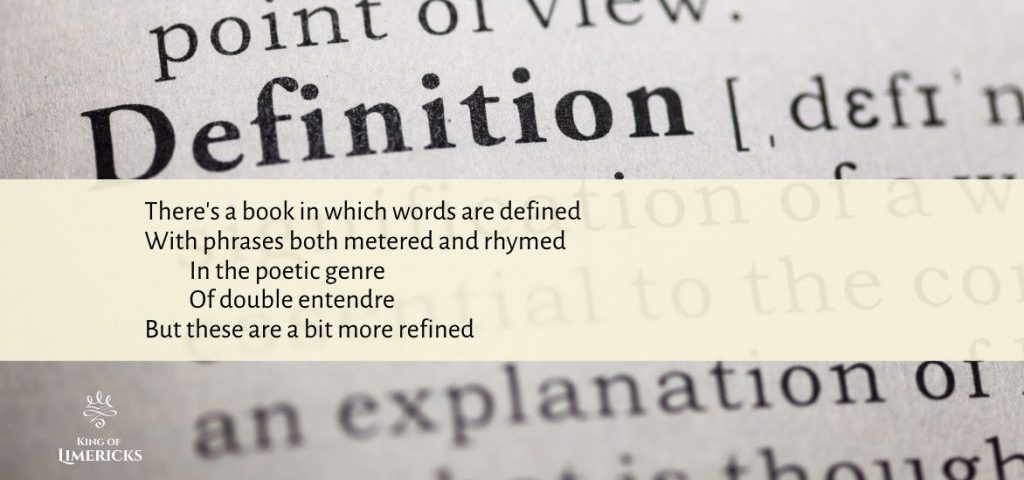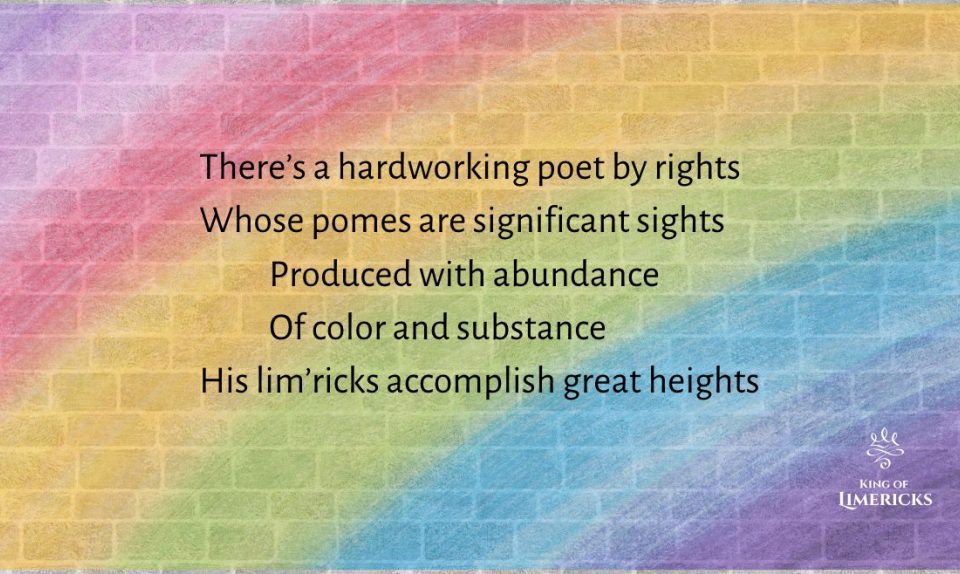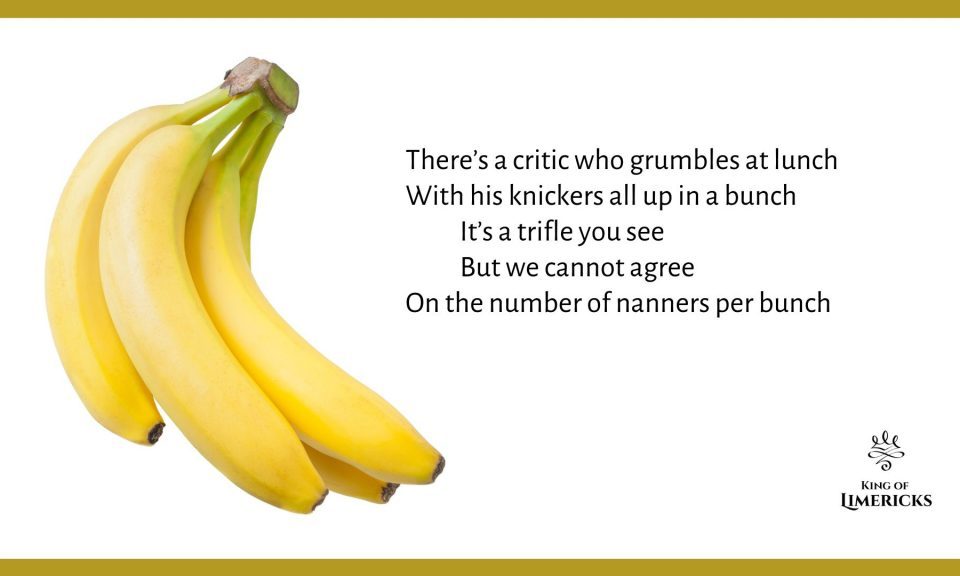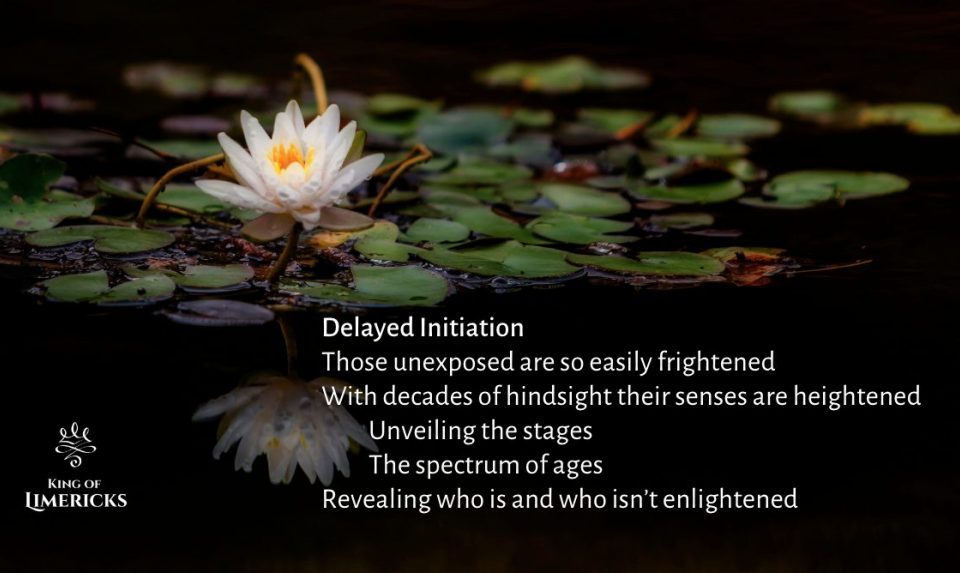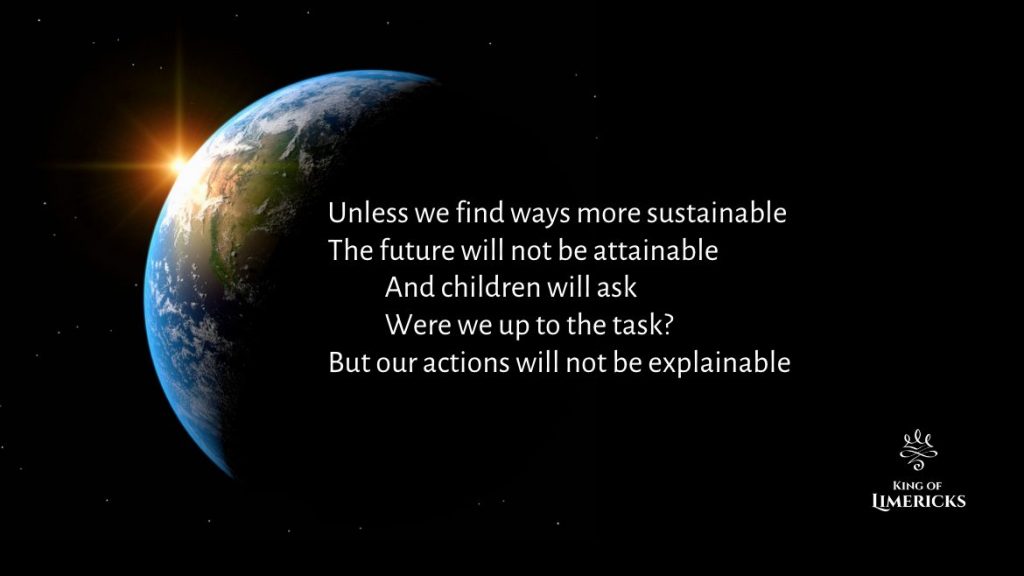
Limericks in the Face of Climate Change

Limericks about Bamboo: Sustaining Poetry
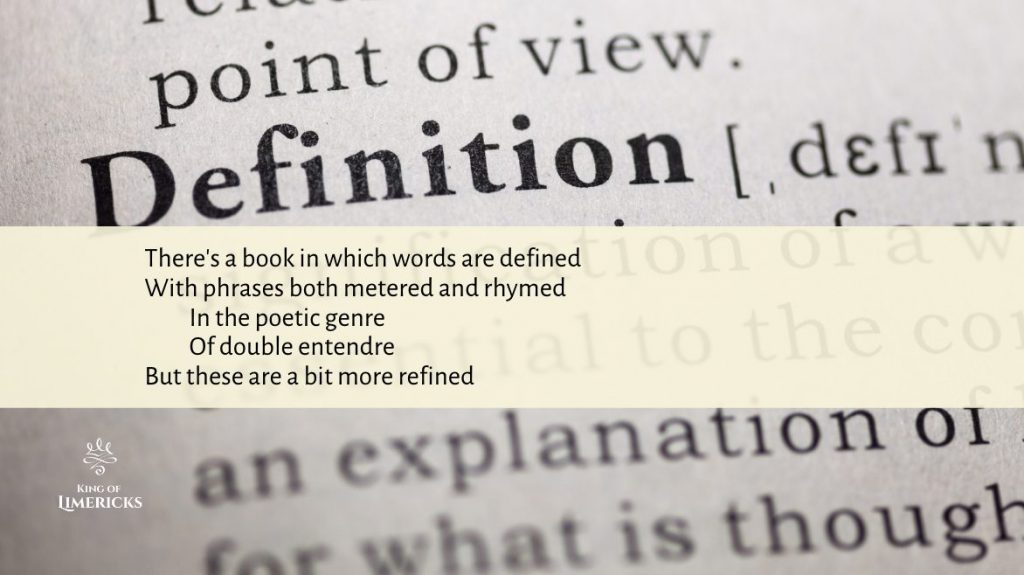
I’d like to start by thanking Doug, my colleague and comrade in rhymes, for bringing the OEDILF to my attention. That’s the Omnificent English Dictionary In Limerick Form. And obviously, it’s an idea whose time has come.
The Omnificent English Dictionary In Limerick Form is a book that needs no definition, because the title says it all. More accurately, it is a virtual dictionary and not the kind of book you can use to prop a door open. The brainchild of Chris J. Strolin, the OEDOLF aims to provide a limerick for every word in the Oxford English Dictionary, compiled through public submissions. Working through the dictionary in alphabetical order, they accept entries for roughly one page at a time. The expected completion date for the ambitious project is November 2063.
Limericks and Reference Books
When I first learned about the limerick dictionary, it made perfect sense to me. My foray into this poetic form began with an encyclopedia of limericks. It just seemed like the right thing to do.
I wrote something close to 365 limericks about famous artists, great composers, well-known scientists, and renowned authors. I organized the collection by topic, though, instead of alphabetically. And eventually, I moved on to other things.
There’s no doubt that Mr. Strolin’s project involves far more scope and ambition than my encyclopedia ever did. And what’s really great, is that he’s invited the general public, seasoned poets and first-timers, to participate. And in order to maintain the highest level of quality, there is a careful process of submission and review.
They are very strict about having good rhymes, even if imperfect ones. And they are sticklers for accurate meter. But the editing process had me slightly concerned. If they were going to start rewriting my limericks, I wasn’t going to like that. Every word of mine is a jewel, after all. But as for the meter, I was not concerned. I do know how to write a limerick. No, I’m not proud. Just well-versed.
My experience with the OEDILF
From the outset, I was warned that the process of submitting the limerick — and having it reviewed, edited, rejected, or accepted — could be somewhat onerous. In fact, a handful of editors take a look at each entry, making comments and sometimes suggesting revisions. Every limerick goes through what’s called a “workshopping” session before officially entering the online dictionary.
Despite the forewarning, I decided I had to submit a few definitions to this major compendium. And I did in fact find the website to be a little clunky, but entirely free of ads. I saw that the all-volunteer staff had already made their way up to “H-e” in the alphabet. No doubt, this was an impressive collection of limericks if ever there was one.
And now I was really determined to be a part of it. So I submitted these three definitions.
Healing
There’s a method for healing Creation
For the illness afflicting the nation
If hate is the cancer
Then I have the answer
Through lim’ricks I offer salvation
Henotheism
In the land of the henotheistics
The pantheon faces logistics
With one god superior
The rest are inferior
And merely immortal statistics
Herbivore
As an herbivore enters your dwelling
Opinions he’s prone to expelling
“Your salad’s done sparsely
And begging your parsley
The bone broth I find most repelling”
The OEDILF Approval Process
I felt these three limericks pretty well represented me as a limericist, under the alphabetical circumstances and restraints. Not only do I specialize in metaphysical limericks and comparative religion, but I’m also a vegetarian.
It turns out that the OEDILF’s stylistic convention is to use punctuation, including commas and occasional periods as if it were prose. It’s not something I do, mainly because limericks are poems, not prose. But that’s how they roll. Every limerick needs to end with a period, and so do some of the lines.
Their only other quibble was over my apostrophe in “lim’rick” to indicate that it only had two syllables. A nit-picky reader, presumably with a British accent, once called me out for not apostrophizing it, so I’ve taken to this habit. But the OEDILF editors do not follow this custom. Given the context, it should be clear enough to the reader, they say, whether the word limerick needs to be pronounced with two syllables or three.
I’m not sure we can always trust the readers to get it right on the first try, but it does look better without the apostrophe. And looks should count for something.
There’s a book in which words are defined
With phrases both metered and rhymed
In the poetic genre
Of double entendre
But these are a bit more refined
NOTE: While we’re on the subject of nitpicking and meter, I feel I should clarify the preceding limerick. Ordinarily, the accent in the word “poetic” falls on the second syllable. But for the purpose of true anapest meter, the reader has to stress the first syllable in the case. It may not be perfectly customary, but in my opinion, it doesn’t sound the least bit awkward or unnatural. What do you think?
Further Reading
If you enjoyed this illuminating article about the Omnificent English Dictionary in Limerick Form, please consider sharing the page or subscribing to the blog. You might also consider purchasing one of my books. And in the meantime, you can peruse these popular posts.
- Custom Limericks and Poetry Services
- Limericks about Reference Books
- 13 Educational Limericks
- The History of Limericks from Shakespeare to Spirit Rock

